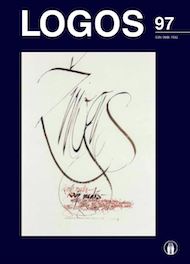TEATRAS PO ANTROJO PASAULINIO KARO : LYGINAMOJI BECKETTO ABSURDO TEATRO
IR BUTÕ AVANGARDO TEATRO ANALIZĖ
THEATER AFTER THE SECOND WORLD WAR: COMPARATIVE ANALYSIS OF THE BECKETT ABSURD THEATER AND THE BUTOH AVANT-GARDE THEATER
Author(s): Laura VarnauskaitėSubject(s): Theatre, Dance, Performing Arts, Cultural history, History of Art
Published by: Visuomeninė organizacija »LOGOS«
Keywords: avant-garde; absurd theater; Samuel Beckett; Tatsumi Hijikata; Kazuo Ohno; Vytautas Kavolis;
Summary/Abstract: The purpose of this article is to reveal how the greatest conflict of the twentieth century has affected the human consciousness and how this change was manifested in the artistic form of expression – through language and body on the stage of the theater. Two examples in different civilizations have been chosen as the subject of the study: Samuel Beckett’s absurd theater in the West and the Butoh avant-garde theater in Japan, which are compared on the basis of Vytautas Kavolis civilization analysis methodology. Within the chosen forms of theater as a way of artistic creation and social protest, one can try to trace the change of consciousness in the very civilizations. The question is, whether these forms of theatre signify a change of consciousness associated with moral and intellectual responsibility or whether it is an existential effort to perceive being in the wrong world or ir is mercy for those who have survived the war?
Journal: LOGOS - A Journal of Religion, Philosophy, Comparative Cultural Studies and Art
- Issue Year: 2018
- Issue No: 97
- Page Range: 190-200
- Page Count: 11
- Language: Lithuanian

